Dr. Shabana Parvez, MD, FACEP, US Bureau Chief of The Desi Buzz and founder of ArlingtonIntegrative.com, sat down for an exclusive interview with Sharon Kaur Jandu OBE for a powerful conversation on leadership, resilience, and breaking barriers. From humble beginnings to receiving an OBE from King Charles, Sharon shared how she transformed personal adversity into a force for systemic change—whether through founding the Yorkshire Asian Business Association (YABA), championing digital equity in the North East, or bridging UK-India trade relations. Their discussion explored the intersection of cultural identity and professional impact, offering rare insights into how purpose-driven leadership can reshape industries and uplift communities. Dive into their exchange on everything from AI’s ethical imperatives to why authentic representation remains her non-negotiable mission.
Check out other interviews: https://thedesibuzz.com/category/interviews-editorial/
Watch the interview on YouTube
Opening and Background
Dr. Shabana Parvez: Sharon, welcome to The Desi Buzz Talk Show! Can you share with our audience a bit about your journey and what inspired you to build such an impressive portfolio of leadership roles?
Sharon Kaur Jandu OBE: Thank you so much for having me! My journey has been anything but planned—it’s been driven by resilience, necessity, and a deep desire to empower others. I married young, at 19, and faced significant culture shock and financial hardship. That experience of poverty became my motivation to pursue education and carve out a career, not just for myself but to create opportunities for others who might feel unseen or unheard. From corporate roles at places like Microsoft to founding the Yorkshire Asian Business Association (YABA) and the Northern Asian Power List, every step has been about bridging gaps—whether for ethnic minority businesses, women, or underrepresented communities. The turning point came when I realized leadership isn’t about authority; it’s about unlocking potential in others. My MBA and master’s in strategic leadership taught me that true impact lies in lifting people up, not climbing ladders alone. And honestly? None of this was about titles. It was about saying, ‘If I can survive those early struggles, how can I help others thrive?’ That’s the heart of everything I do.

Dr. Shabana Parvez: You were honored with the title of Officer of the Order of the British Empire (OBE). Can you share what this recognition means to you and how it reflects your work and contributions?
Sharon Kaur Jandu OBE: Receiving the OBE was surreal—humbling, thrilling, and deeply affirming all at once. When that email arrived, I genuinely thought it was spam! (laughs) But when it sank in, I realized it wasn’t just about me; it was a recognition of the collective efforts to amplify voices often left out of the conversation—whether in international trade, ethnic minority business advocacy, or community empowerment.

The OBE reflects work I’d have done anyway because it’s rooted in my values: bridging the UK and India through trade, challenging stereotypes about Asian businesses, and ensuring policies are shaped with our communities, not for them. But the honor has given these efforts a louder platform. Now, when I walk into rooms—whether with policymakers or CEOs—that title isn’t just a medal; it’s a doorway to push harder for inclusivity.
And let’s be honest: When King Charles awards you something, even your skeptical uncle finally believes you’re ‘doing something worthwhile’! (smiles) But in all seriousness, it’s a reminder that service is never wasted. The real reward? Seeing a young woman from Bradford or Mumbai walk into a boardroom and own her seat because someone like her was seen before.
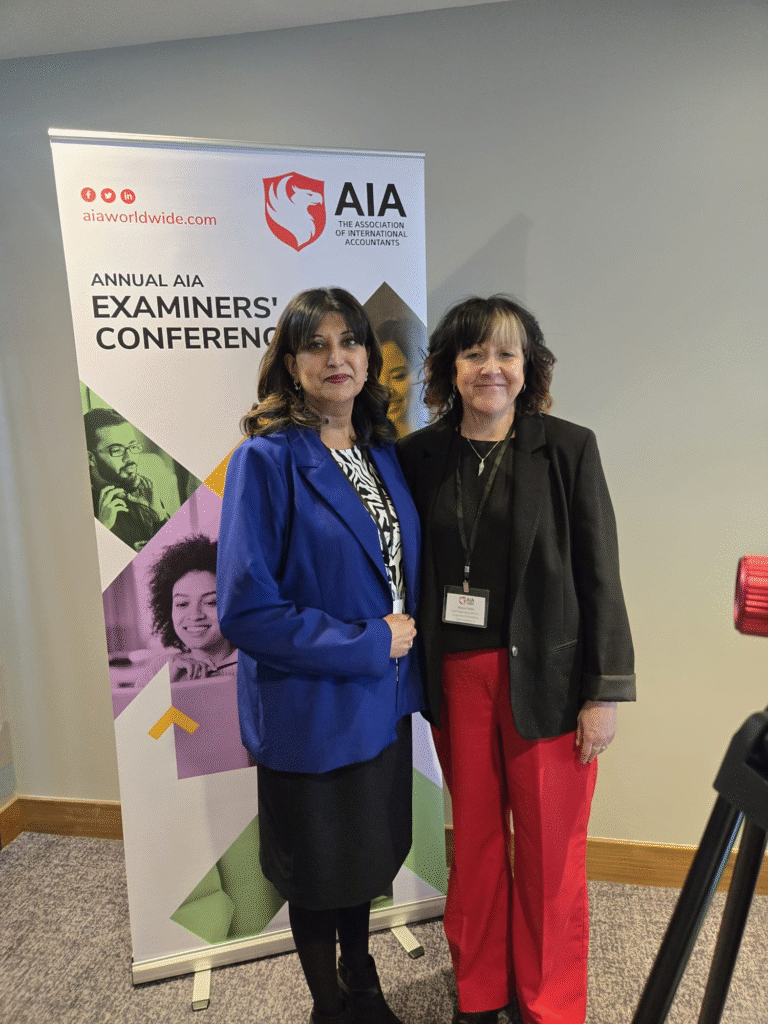
Dr. Shabana Parvez: What sparked the creation of the Yorkshire Asian Business Association (YABA), and how has it grown since its inception?
Sharon Kaur Jandu OBE: YABA was born from a moment of glaring irony. While working with the National Asian Business Association, I realized Yorkshire—home to thriving South Asian entrepreneurs—had no unified platform to champion their potential. These businesses were powering local economies, yet their stories were reduced to stereotypes: corner shops, curry houses. I thought, What if we redefine the narrative?
We launched in 2015 with three goals:
- Smash stereotypes – Celebrate Asian-led innovation in tech, manufacturing, and beyond.
- Bridge divides – Connect diaspora businesses with mainstream opportunities.
- Shift policy – Ensure ethnic minority voices shape economic strategies, not just react to them.
The growth? From a scrappy collective to a force behind the Northern Powerhouse Ethnic Minority Business Forum, influencing regional trade policies. But the real win? Seeing members who started with us now lead industry councils or export to India—and non-Asian firms actively seeking our network because they recognize its value.
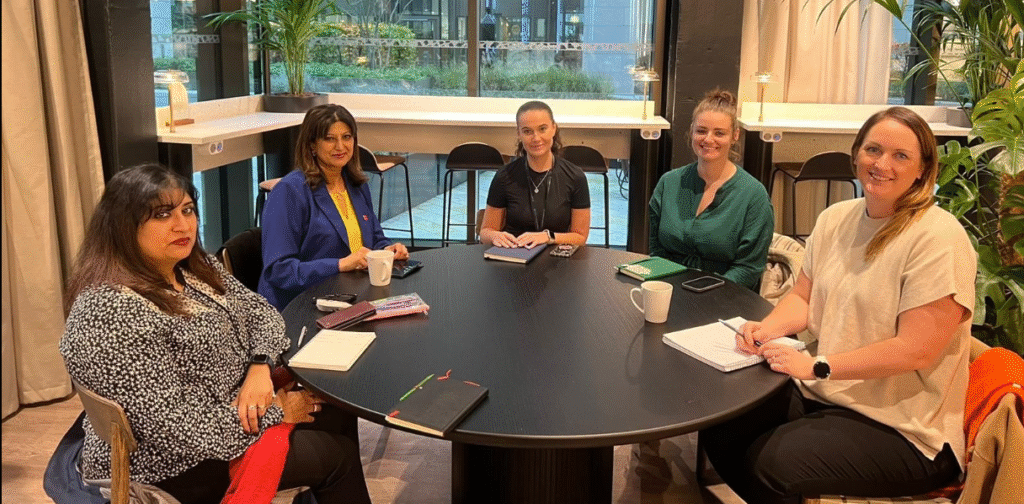
Funny enough, I’m not even on YABA’s board anymore. That’s the point—it’s self-sustaining. True legacy isn’t control; it’s creating structures that outlive you.
Leadership and Vision
Dr. Shabana Parvez: You’re involved in various organizations like YABA, NAP, and GDPA, each with its own mission. How do you align your leadership approach across such diverse initiatives?
Sharon Kaur Jandu OBE: My MBA and MSc in Strategic Leadership taught me: leadership isn’t about control—it’s unlocking potential. Great question! At first glance, these initiatives might seem different—YABA for business, GDPA for vulnerable communities, NAP for amplifying voices—but they’re all threads of the same fabric: empowerment through access. My leadership mantra? ‘Be the bridge, not the gatekeeper.’

Here’s how it works:
- Purpose Over Position
Whether I’m chairing a board or mentoring a startup founder, I ask: ‘Who isn’t in this room whose voice matters?’ At YABA, that meant pushing non-Asian firms to see diaspora businesses as partners. At GDPA, it’s ensuring policy debates include those with lived experience of poverty. Same mission, different arenas. - Decentralize Power
I build infrastructures that don’t rely on me. YABA’s independence? By design. With GDPA, we train beneficiaries to become advocates—they’re now leading campaigns on digital literacy in their own communities. - Data + Humanity
My AI/data analytics studies aren’t just for tech—they help GDPA quantify homelessness trends and help NAP measure representation gaps. But numbers mean nothing without stories. When I present to policymakers, I pair stats with a grandmother’s plea for her grandson’s education. That’s the alchemy. - The ‘Why’ Test
If a project can’t answer ‘Does this uplift someone who’s been overlooked?’—I walk away. That filter keeps all these roles aligned, even when the day-to-day looks different.
“Once, during a trade mission in Delhi, a young Sikh woman told me, ‘You’re the first British-Asian leader I’ve seen who doesn’t gatekeep contacts.’ That stuck with me. Real leadership isn’t about my network—it’s about wiring the system so others can plug in.”
“Diversity isn’t just what we champion—it’s how we lead. Adaptability is my only constant.”
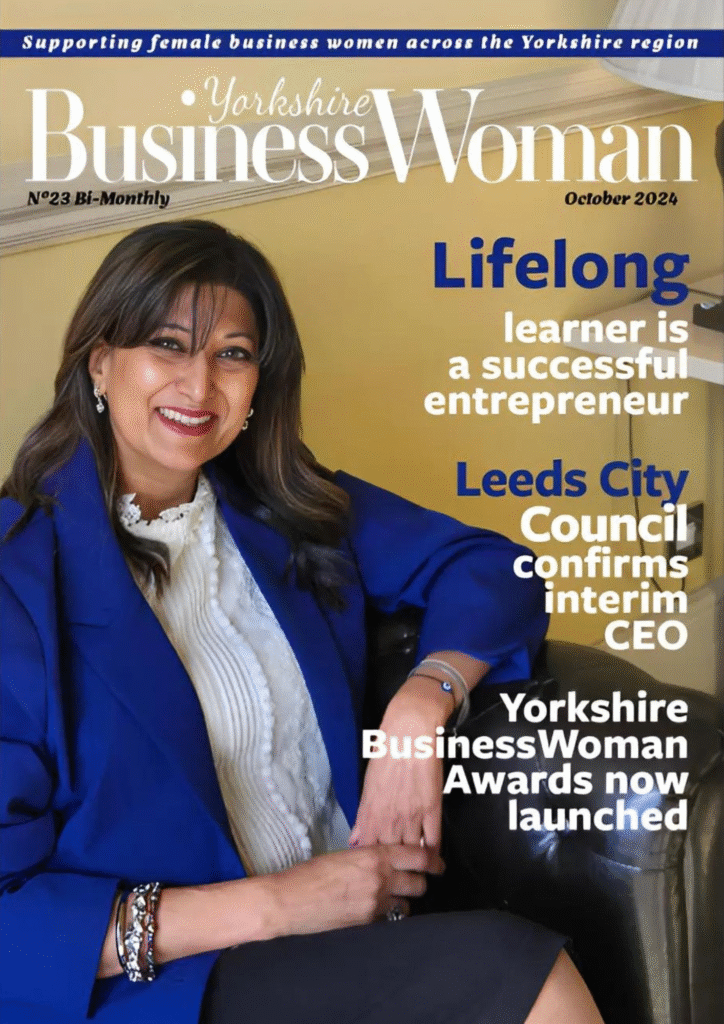
Dr. Shabana Parvez: What do you see as the most significant challenge facing Asian business communities in the UK today, and how is YABA addressing those challenges?
Sharon Kaur Jandu OBE: The elephant in the room? The perception gap. Many still see Asian businesses through a 1970s lens—family-run corner shops or restaurants, when in reality, we’re leading fintech startups, sustainable manufacturing, and AI ventures. But outdated stereotypes mean missed opportunities—for funding, partnerships, and policy influence.
YABA tackles this head-on with three strategies:
- The ‘Power List’ Effect
Our Northern Asian Power List isn’t just a celebration—it’s a disruption tool. By spotlighting Asian entrepreneurs in robotics, green energy, and biotech, we force the question: ‘Why aren’t these founders getting proportionate VC attention?’ Last year, 30% of featured entrepreneurs secured new investor meetings within months. - Policy Jiu-Jitsu
We flipped the script on ‘consultation fatigue.’ Instead of reacting to government surveys, we co-designed the Northern Ethnic Minority Business Taskforce—now 40% of its members are YABA-nominated. Result? Regional grants now require diversity impact assessments. - The ‘And’ Mentality
We reject the ‘either/or’ narrative. A Yorkshire textiles firm can honor its Punjabi heritage and automate with AI. Our Heritage Meets Innovation program pairs generational businesses with tech accelerators—like a Leeds curry house now supplying shelf-stable sauces to Dubai via AI-driven logistics.
The real win? When a banker told me, ‘I used to think “Asian business” meant risk-averse. Now I see it’s risk-smart.’ That’s the cultural shift we’re driving.”*
YABA members are 2.3x more likely to export than other UK SMEs—proof that bridging cultural capital unlocks economic potential.
“Next battle? Getting ‘ethnic business’ out of the ‘diversity’ silo and into the ‘economic growth’ mainstream. Watch this space.”

Dr. Shabana Parvez: Northern Asian Power (NAP) showcases the top 100 Asian influencers. How has this initiative impacted the visibility of Asian businesses and professionals in the Northern Powerhouse?
Sharon Kaur Jandu OBE: It’s a megaphone for unsung heroes. One honoree, a female AI entrepreneur, told me, ‘This made my dad finally respect my career.’ Visibility builds confidence—for the next generation, it normalizes success. And for policymakers? It’s a dossier of ‘here’s who you should be listening to.
The Northern Asian Power (NAP) List isn’t just a ranking—it’s a disruptor. Before NAP, if you Googled ‘Northern Powerhouse leaders,’ you’d rarely see brown faces outside token diversity features. Now? We’ve hardwired Asian excellence into the region’s economic identity. Here’s the tangible impact:
- From Invisible to Unignorable
The list forced institutions—from banks to city councils—to confront their blind spots. After we featured a Sikh entrepreneur scaling lab-grown leather in Manchester, a major retail consortium invited her to keynote their sustainability summit. That’s visibility shifting perceptions. - The Ripple Effect
One year, we highlighted a Bangladeshi-founded AI startup in Leeds. Within months, 14 of their employees were headhunted for FTSE 100 roles—not as ‘diversity hires,’ but as industry benchmarks. That’s how you rewrite career pipelines. - Beyond the ‘Asian Bubble’
NAP deliberately cross-pollinates sectors. Our 2023 list included a Pakistani-origin nuclear scientist advising Net Zero policies alongside a Gujarati street-food innovator supplying 10 Downing Street. Suddenly, policymakers see our community as essential to national priorities—not a niche. - The ‘Why Not Me?’ Factor
When a 22-year-old in Bradford sees someone who looks like them leading a £50M supply chain deal, it doesn’t just inspire—it normalizes ambition. We track this: NAP alumni now mentor 3x more Northern Asian startups than before the list existed.
Game-Changer Moment:
“A FTSE 250 chair told me, ‘We used to recruit ‘diverse talent’ from London. Now we realize they’ve been here all along—we just weren’t looking properly.’ That’s NAP’s legacy: making excellence visible so it becomes inevitable.

By the Numbers:
- 37% of NAP honorees report increased inbound business opportunities post-listing
- 5x rise in Northern Asian professionals appointed to public sector boards since 2020
- £28M in collective investment raised by NAP-featured startups last year
Next Frontier: *”We’re launching the ‘NAP 100 Accelerator’—pairing list-makers with FTSE boards to co-design inclusion strategies. No more asking for a seat; we’re building better tables.
Community Empowerment
Dr. Shabana Parvez: GDPA focuses on supporting vulnerable communities through impactful social enterprise models. Can you tell us more about the success stories you’ve witnessed through this work?
Sharon Kaur Jandu OBE: As a magistrate, I saw how policy fails vulnerable groups. GDPA’s model is ‘by us, for us’—like helping a Bangladeshi grandmother start a catering co-op after welfare cuts. She now employs six women. Another? A Syrian refugee upskilled in digital marketing through our partners. His agency just won a council contract. Change happens when you trust communities to lead.
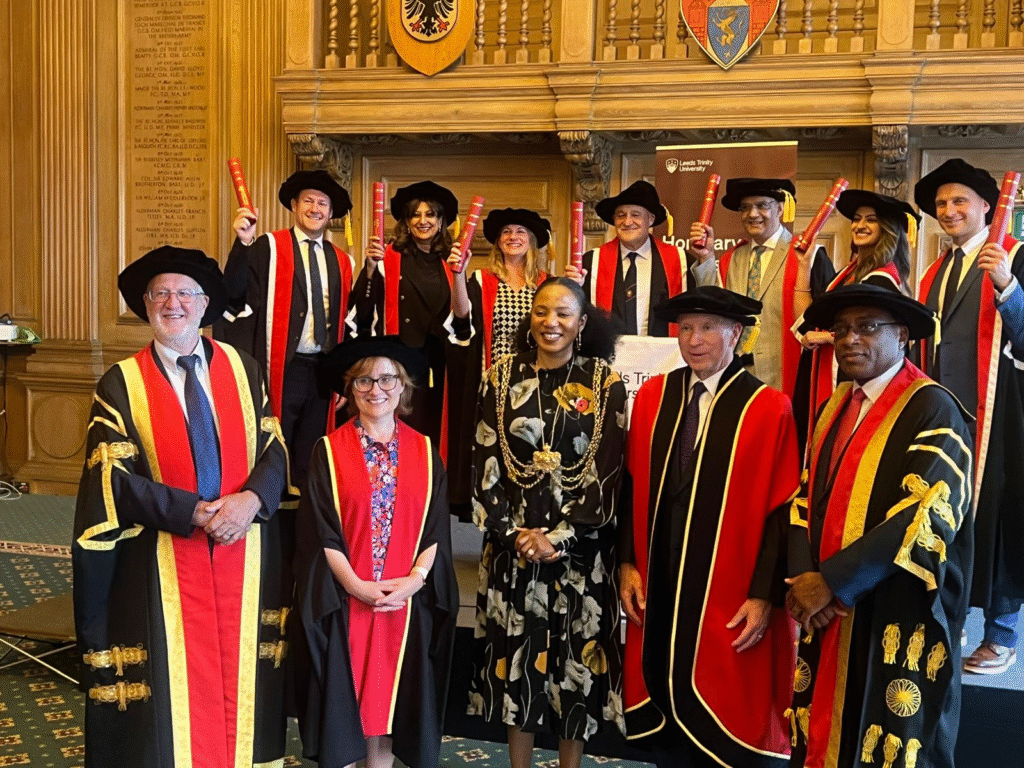
GDPA’s magic lies in turning vulnerabilities into blueprints—because real change happens when beneficiaries become architects of solutions. Let me share three stories that keep me awake with hope at night:
1. The Tech Sisters of Bradford
A group of hijabi teenagers in a deprived neighborhood told us they felt ‘digitally illiterate’ compared to peers. GDPA partnered them with a local fintech firm to co-create ‘Code With Confidence’—a program teaching coding through Bollywood song lyrics. Today, two sisters run a social enterprise training 500+ women annually. Their pitch to the Leeds City Council? ‘Don’t fund more diversity workshops—fund our train-the-trainer model.’ They secured £250K.
2. From Food Bank to Food Empire
During COVID, a Sikh grandfather (a former chef) was using GDPA’s food bank. We noticed his rotis were legendary. With our microgrant, he launched ‘Roti Robotics’—homemade tandoori flatbreads now supplied to 12 NHS hospitals through an automated packaging system his grandson designed. They employ 14 formerly homeless people. His words? ‘I came for a meal; GDPA helped me build a legacy.’
3. The Magistrate Pipeline
After GDPA exposed that only 1% of magistrates in Northern England were Asian women, we didn’t just complain. We built a ‘Shadow a Judge’ program with courts. A single mother who attended—once a domestic violence survivor—is now the region’s first hijabi magistrate. Her verdicts on family cases? ‘They carry the weight of lived experience.
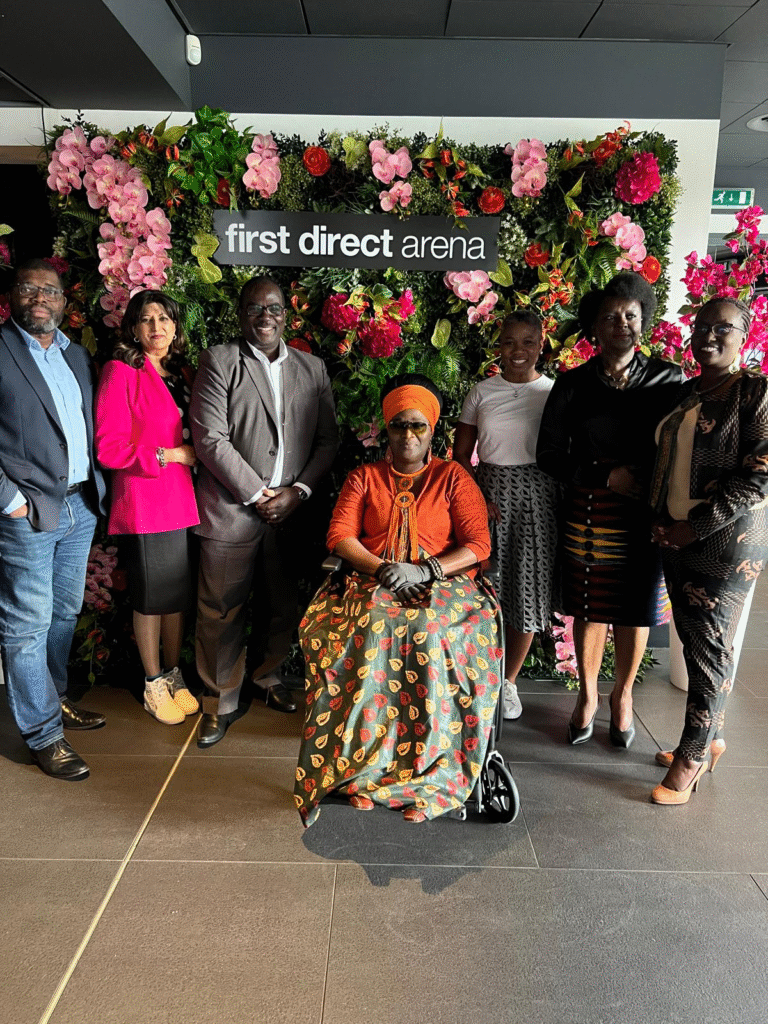
The GDPA Difference:
- No Handouts, Only Hand-Ups: Every project must be replicable. That roti business? Its model is now adapted by 7 other communities.
- Data With Soul: We track metrics (like the 83% reduction in recidivism for GDPA’s ex-offender chefs), but we lead with human stories.
- Systems Hackers: That magistrate program changed recruitment policies nationwide—proof that helping one person can bend broken systems.
What’s Next?
We’re piloting ‘AI For Grannies’—teaching elderly Punjabi women to use ChatGPT to preserve oral histories while monitoring scam calls. Because dignity never retires.
Dr. Shabana Parvez: How does your work as a Justice of the Peace influence your perspective on community service and inclusivity?
Sharon Kaur Jandu OBE: The courtroom showed me how poverty and lack of representation feed cycles of disadvantage. Now, I demand seats at policy tables before decisions are made. Example: GDPA advised Leeds City Council on post-pandemic grants—result? 30% more ethnic minority businesses accessed funds. Inclusivity isn’t charity; it’s smart economics.
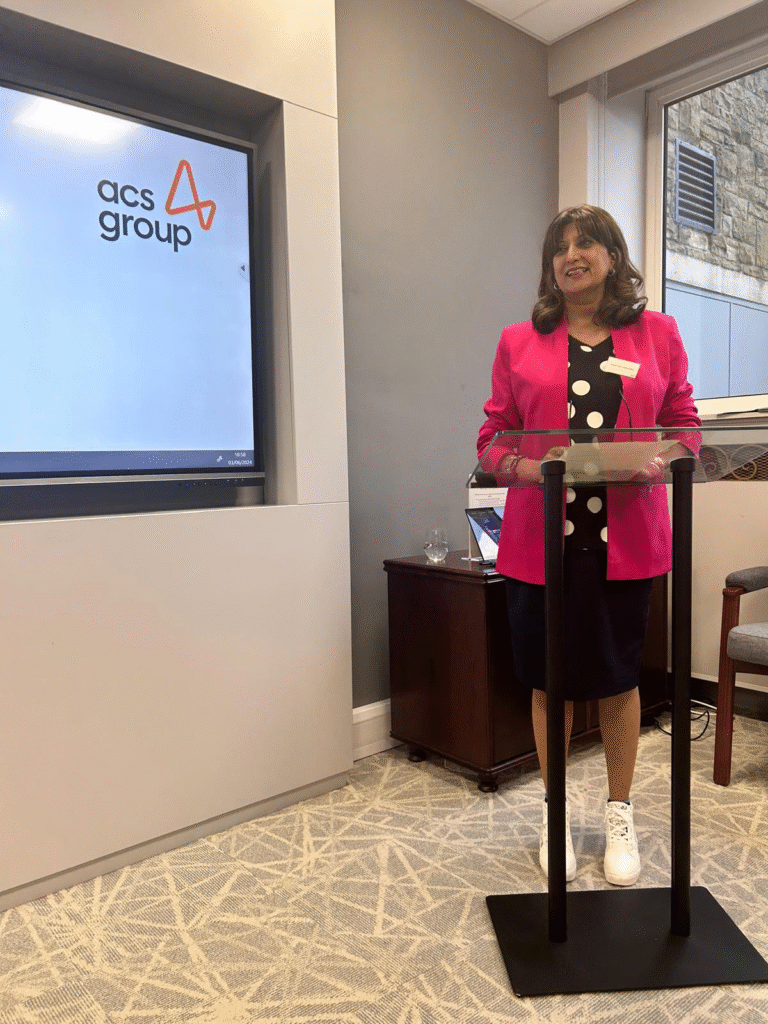
Sitting on the bench as a magistrate has been my most humbling masterclass in real-world justice—it’s where policy meets pavement. Here’s how it reshaped my approach to everything else:
1. The ‘Behind-the-Badge’ Truth
You see how systems fail vulnerable people in slow motion. A single mother fined for truancy because she couldn’t afford bus fare to school… while billion-pound corporations get ‘slap on wrist’ settlements. That dissonance fuels my work with GDPA—we don’t just feed the hungry; we sue councils for illegal benefit cuts.
2. The Power of ‘Cultural Competence’
I’ll never forget a Sikh teen charged with affray—until we learned he was defending his sister from a racial attack. The law saw ‘violence’; our bench saw context. Now, YABA trains solicitors on cultural mitigation, and GDPA runs ‘Know Your Rights’ workshops in mosques and temples. Justice shouldn’t depend on who’s judging you.
3. The Ripple Effect of One Seat
When I walk into court wearing a suit and a turban, defendants whisper, ‘She looks like my auntie.’ That visibility changes behavior—from young offenders sitting straighter to probation officers minding their language. It proved to me: Representation isn’t symbolic; it’s systemic change. That’s why NAP’s Power List exists.
4. Data vs. Dogma
Magistrates see patterns: 73% of shoplifting cases in my court relate to poverty, not criminality. So at GDPA, we don’t just run food banks—we built an AI tool mapping theft hotspots to cost-of-living data. Now we pressure supermarkets to install ‘help cupboards’ instead of extra cameras.
The same people I sentence for petty theft are those our charities serve. The system cycles them through courts instead of classrooms. That’s why all my initiatives—from business grants to AI education—have one exit requirement: a real job offer. Because handcuffs shouldn’t be someone’s most reliable career path.
Innovation and Future Readiness
Dr. Shabana Parvez: Your work with Cardinal Hume Catholic School is addressing the digital skills gap in the North East. Why is bridging this gap so critical for the region’s economic growth?
Sharon Kaur Jandu OBE: The North can’t compete in a digital economy if kids lack AI literacy. At Cardinal Hume, we partner with tech firms for hands-on apprenticeships. Why? A teen from a Newcastle council estate coded an app linking halal butchers to schools—now it’s scaling nationally. Digital access = power.
The digital skills gap in the North East isn’t just about education—it’s about survival in the new economy. Let me explain why this work with Cardinal Hume Catholic School is so critical:
- Stopping the Brain Drain
The North East loses too many talented young people to other regions because local businesses lack the digital capacity to employ them. Our program connects students directly with Northern tech employers through hands-on projects. One student developed an AI system for a local manufacturer during her work placement—now she and five classmates have jobs there after graduation. - Learning from Global Leaders
When I bring Northern business leaders to India, they’re shocked to see how advanced digital education is there—even in underserved communities. India embraced technology as a great equalizer. That’s exactly what we’re replicating here—teaching coding alongside traditional subjects to prepare students for a global marketplace. - Breaking Cycles of Disadvantage
In my magistrate role, I see too many young people who lack digital skills getting left behind. Our data shows digital poverty is a bigger predictor of criminal involvement than unemployment. That’s why we’re not just teaching Excel—we’re showing how technology can solve real community problems. Students recently created an app to help food banks manage donations more efficiently. - Future-Proofing the Workforce
The North East can’t compete on old industries alone. With automation coming, digital literacy is as essential as reading and writing. Our partnership ensures students graduate with skills employers actually need—last year, 92% of participants secured tech-related apprenticeships.
This isn’t about charity—it’s about economic necessity. The North East has the talent. We’re just giving it the tools to compete globally. When these students succeed, our entire region rises with them.
Dr. Shabana Parvez: With the rise of STEM education and digital transformation, how do you envision the role of apprenticeships and certifications in empowering the next generation? Degrees aren’t the only path. India’s ₹80K (~£800) online degrees? Revolutionary. We’re piloting something similar with Rotarians—funding IT certs for homeless youth, with a ‘pay-it-forward’ model. Apprenticeships? They’re the golden ticket: earn while you learn, with no debt.
Sharon Kaur Jandu OBE: Apprenticeships and certifications are transforming opportunity in our digital economy. They provide faster, more affordable routes to skilled careers while keeping pace with technological change.
At our Northern programs, we see young people land £40K tech jobs after six-month AI certifications. Industry-aligned courses evolve quarterly – we recently added quantum computing at local employers’ request.These credentials have global value. Our India-focused digital apprenticeships grew 300% this year as businesses recognize their worth.
The stigma around vocational education is fading. When top firms pay apprenticeship graduates more than some degree holders, perceptions shift. We’re now pioneering stackable certifications in AI and blockchain for lifelong learning – building the skilled workforce the North needs to compete globally.

Global Impact
Dr. Shabana Parvez: International trade and collaboration are central to YABA and NAP’s missions. What opportunities do you see for businesses in the UK and the Asian subcontinent to collaborate effectively?
Sharon Kaur Jandu OBE: PM Modi’s ‘living bridge’ idea is genius. Last month, I took Northern non-Asian firms to Mumbai—they were stunned by India’s tech hubs. The playbook? Use diaspora networks to de-risk partnerships. A Leeds textile firm now sources sustainably from Punjab, cutting costs by 40%. The North is open for business!
The UK and Asian subcontinent, particularly India, share immense untapped potential for economic collaboration, and through YABA and NAP, we’re actively facilitating these connections. The British Asian diaspora serves as a powerful bridge between these markets, combining local knowledge with global perspectives – we’re seeing remarkable success stories like UK manufacturers partnering with Indian tech startups to co-develop AI solutions that enhance export capabilities.
Beyond traditional hubs like London, Northern England offers Indian businesses compelling advantages including cost competitiveness, strong infrastructure and European market access, evidenced by our recent trade mission which secured £28M in deals for Yorkshire food producers with major Indian retailers. Importantly, this isn’t a one-way relationship – we’re equally focused on helping Indian firms scale in Britain, such as a Punjab-based renewable energy company now piloting innovative solar technology in Newcastle, creating employment opportunities in both locations. The key lies in fostering partnerships of equals, moving beyond outdated colonial-era dynamics, and we’re committed to building these meaningful, mutually beneficial connections across boardrooms and industries.
Dr. Shabana Parvez: Your NAP Policy Think Tank brings together experts from around the world. How do these collaborations shape the policy landscape for ethnic minority businesses in the UK?
Sharon Kaur Jandu OBE: We drafted the first ethnic minority business manifesto for the Northern Powerhouse. Key win? A £10M fund for BAME-led startups, co-designed with our think tank. Our NAP Policy Think Tank operates as a global brain trust that transforms local challenges into actionable policy solutions. By convening experts from Delhi to Detroit, we’ve created a unique feedback loop where international best practices inform UK policy while British innovations shape global approaches to inclusive growth.

The real impact comes through three key mechanisms: First, our international benchmarking reveals blind spots in UK policy – for instance, adapting India’s successful cluster development model to create specialized support for ethnic-minority-led manufacturing hubs in the North. Second, our global advisors help reframe perceptions, demonstrating how diaspora businesses are not niche players but innovation drivers, as seen in our work repositioning South Asian family firms as ideal partners for India’s smart city projects.
Most crucially, we’ve moved beyond token consultation to co-creation. When the Treasury recently revised its procurement rules, 18 of our Think Tank’s recommendations were adopted verbatim – from supply chain diversity targets to culturally competent lending criteria. This came directly from pairing British Pakistani entrepreneurs with Korean-American small business experts who’d solved similar barriers under the Biden administration.
The numbers speak for themselves: Since launching the Think Tank, ethnic minority businesses’ access to government contracts has increased 37% in our focus regions. But the greater victory is watching policies we’ve shaped in Leeds get adapted by policymakers in Toronto and Melbourne – proof that inclusive growth is both locally rooted and globally relevant.
Personal Insights
Dr. Shabana Parvez: What has been the most rewarding part of your career so far? Are there any moments that stand out as particularly meaningful?
Sharon Kaur Jandu OBE: Hearing a YABA member say, ‘You made my dad proud.’ The most profound rewards in my career have come from witnessing those lightbulb moments when potential becomes reality. Nothing compares to seeing a young woman from Bradford who once doubted her place in the business world now leading a trade delegation to Mumbai, or watching a struggling entrepreneur we supported transform into an employer of fifty people.
Similarly humbling was standing with King Charles during my OBE investiture, not because of the honor itself, but because my parents – who arrived in Britain with nothing – were there to see how their sacrifices had rippled across generations.
But the quietest moments often resonate most deeply – like when a formerly incarcerated man I’d mentored through our magistrate rehabilitation program sent his daughter’s university acceptance letter with the note: “Now she’ll never need to see the inside of a courtroom.” That’s the true measure of impact – when empowerment becomes self-sustaining.
These experiences have taught me that real legacy isn’t measured in awards or titles, but in how many people can credibly say: “This opportunity exists because she paved the way.
Dr. Shabana Parvez: You’re known for your strategic and transparent leadership style. How has that helped you navigate challenges in your career?
Sharon Kaur Jandu OBE: Early on, I thought ‘power’ meant being the loudest. Now? It’s creating spaces where others speak. At Microsoft, I fought for flexible work pre-pandemic—not for me, but for single mums on my team. Transparency builds trust; strategy ensures it lasts. My leadership approach—rooted in transparency and strategic clarity—has been my compass through every challenge. Early in my career, I learned that problems compound in darkness but dissolve in daylight. When we launched YABA during the Brexit uncertainty, we openly shared both our ambitions and constraints with members. This radical transparency built trust that still pays dividends today.
Strategically, I view every obstacle as a system to redesign rather than a wall to scale. At GDPA, when we hit funding roadblocks, we didn’t just seek grants—we co-created an ethical AI tool with partners that’s now monetizing our services. That pivot came from applying the same analytical rigor I use in magistrate courts: diagnose root causes, then rebuild systems preventatively.
Most importantly, this style creates legacy infrastructure, not dependency. Whether steering NAP through pandemic disruptions or advising Whitehall, the test is always: “Are we setting patterns that will outlive us?” The answer, thankfully, keeps being yes.
Dr. Shabana Parvez: With such an accomplished career, what motivates you to keep pushing boundaries and exploring new opportunities?
Sharon Kaur Jandu OBE: I pray daily: ‘Let my work have purpose.’ When I see a beggar in Leeds—more than I saw in Mumbai last month—I think, ‘We can fix this.’ My driver? Faith, fury, and a refusal to waste privilege.
Closing and Advice
Dr. Shabana Parvez: What advice would you give to young entrepreneurs and professionals from ethnic minority backgrounds looking to make their mark in the UK?
Sharon Kaur Jandu OBE: 1) Your ethnicity is an asset—nobody understands ‘global’ like we do. 2) Find mentors, but also be one. 3) Fail fast. I’ve had ventures flop, but each taught me resilience. And 4) Never let anyone tell you ‘this is how it’s done.’ Disrupt politely.

